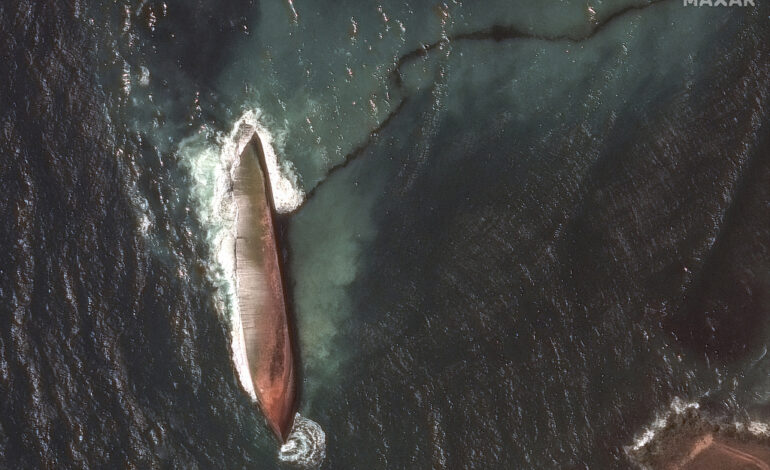Learn from Tobago: T&T PM supports regional oil spill contingency plan

Ongoing recovery efforts in Tobago’s February 7 oil spill serves as a grim reminder of what could occur in the event of a large-scale oil spill within the Caribbean region, and the need for a regional contingency plan.
Trinidad and Tobago’s Prime Minister Dr Keith Rowley said he’s in support of such a plan in light of growing activity in neighbouring Guyana’s energy sector.
“The idea of a regional contingency plan is eminently good sense and Trinidad and Tobago will support that and in fact the region would look to us to play a major role in that. It’s Guyana, Suriname, Venezuela, Grenada…in this part of the region we are all involved in the hydrocarbon business.
“What happened in Tobago, I’m pretty sure, would be observed and used as a learning experience for our neighbours and people worldwide as to how you handle it…with Guyana handling such large volumes offshore…we saw what happened in the Gulf of Mexico…God forbid that something like that happens in the Guyana field, we would really be in the middle of it, so we all look for best practice…and subscribe to the understanding that safety and good sense trumps everything else.”
Conservation group Fishermen and Friends of the Sea expressed concern at developments in Guyana, which is set to become one of the world’s key contributors to oil supply growth.
The group is calling for a meeting of CARICOM to establish a regional contingency plan in light of the Tobago oil spill disaster.
As of June 13, the Tobago House of Assembly reported additional leakage occurring from the overturned Gulfstream, however the THA said there was no direct threat to Tobago’s coastline at this time.
Energy Minister Stuart Young said clean-up costs from the spill could be around US$30 million, however, the situation is still being assessed.
FFOS said the effects of a large-scale oil spill would have a long-lasting impact on the Caribbean sea and the economies dependent on it.
According to the Associated Press, ExxonMobil appealed a recent Guyanese court ruling requiring it to obtain insurance for “unlimited liability” in the event of a major oil spill off the coast of Guyana.
The company said in a statement that the court had failed to consider that Exxon and consortium partners Hess Corp. and China National Overseas Offshore Corporation have the “undoubted ability” to meet their financial obligations in the event of a spill at their operation.
The consortium is operating the prolific Stabroek Block near the southeastern border with Suriname.





